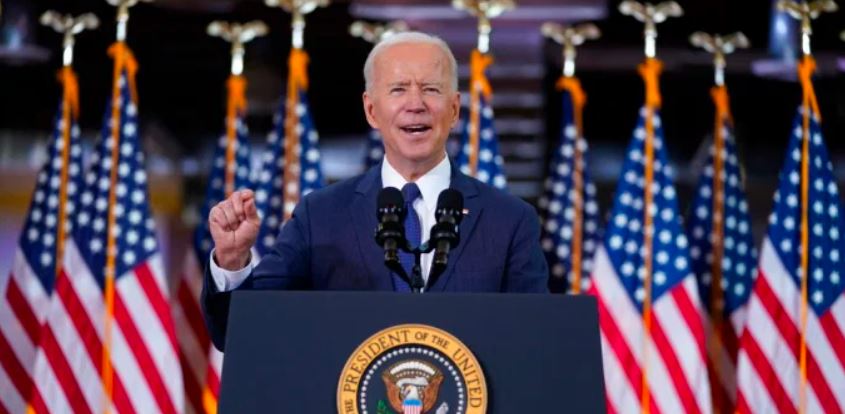As the Biden administration presses ahead with its proposed US$2 trillion domestic infrastructure programme, concerns about the program’s ability to destabilise emerging markets have arisen. If passed, the cumulative amount of extra capital injected into the US economy in relief and recovery packages since March 2020 – when the Covid-19 pandemic first broke out – will reach US$7.2 trillion, the largest such injection since World War II.
Policy experts believe that the new initiative would help modernise ageing bridges and roads while also combating climate change. They can’t agree, however, on whether excessive liquidity would cause large quantities of capital to flow in and out of emerging markets like China, Brazil, and Mexico, causing them to become distorted. The question is whether the new infrastructure programme – the American Jobs Plan – would trigger inflation and price rises in the United States, causing sharp fluctuations in capital flows in other countries.
“The Fed will try to hold out raising rates as long as possible, and what I mean by that is until inflation expectations start going out about 3 per cent,” said Benn Steil, director of international economics at the Council on Foreign Relations in New York. “But I would be surprised if the Fed wasn’t compelled to raise rates by sometime next year,” he further added.
If that happens, international capital may be drawn into the US as bond and loan yields increase, and away from emerging markets, resulting in sharp outflows. The infrastructure bill, according to Steil, is “too large” and “puts enormous pressure on emerging-market central banks to raise rates to avoid massive capital outflows.”
“The US level of activity is likely to be so high in coming months that it may force the Fed to taper sooner than many had originally expected,” said Andrew Bishop, global head of policy analysis at Signum Global Advisors in Washington.
Lawrence Summers, the high-profile Democratic economist who served as director of the Obama White House’s National Economic Council, is one of the bill’s most vocal opponents. Summers, who served as Treasury Secretary in the Clinton administration from 1999 to 2001, wrote in a Washington Post column, “There is a chance that macroeconomic stimulus on a scale closer to World War II levels than normal recession levels will set off inflationary pressures of a generation.”
Chairman of the Federal Reserve, Jerome Powell, said last month that the Fed does not plan to lift interest rates until 2023. However, inflation indexes have risen since then. Consumer prices, a primary indicator of inflation, increased by 2.6 per cent in March compared to the same month the previous year, the largest increase since August 2018, according to the Labor Department. Moreover, last week, the Commerce Department announced that early indications of US retail sales increased by 9.8% in March, beating expectations as recovery checks sent to households began to flow into the economy.
If Biden’s infrastructure plan goes through, countries like Brazil and Mexico will see a huge exodus of investment to the US. Following this would be unparalleled unemployment and poverty which have been the main causes of migration into the US from these countries.
An immigration crisis is already boiling on the southern border of the United States with hordes of immigrants crossing the Mexican border and into the United States and the Biden administration has no plans or solutions. Therefore, if the infrastructure plan is rolled out, it would not just be harmful to Brazil and Mexico but its damaging effects will be felt throughout the United States.








